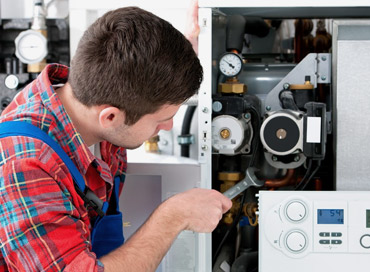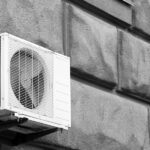
How to Handle Emergency Heating System Repair
Experiencing a heating system failure during the cold months can be distressing. Immediate action is crucial to restore warmth and ensure safety. This guide provides essential steps for handling an emergency heating system repair, from identifying common issues to implementing quick fixes. Understanding how to troubleshoot and when to call a professional can save time and prevent further damage. Equip yourself with the knowledge to tackle heating emergencies efficiently and keep your home comfortable year-round.
Recognizing the Signs of Heating System Failure
Identifying the early signs of a heating system failure can prevent a minor issue from escalating into an emergency. Common indicators include unusual noises, such as banging or whining, which may suggest mechanical problems. Inconsistent temperatures, where some rooms are warmer than others, can signal ductwork or thermostat issues. Additionally, if your heating system is frequently cycling on and off, it could be a sign of a malfunction that needs immediate attention.
Another critical sign is a sudden increase in energy bills without a corresponding increase in usage, indicating that your heating system is working harder than necessary due to inefficiency. Recognizing these symptoms early on allows for timely intervention and minimizes the need for emergency heating system repair, ensuring your home remains comfortable and safe.
Initial Steps to Take in an Emergency Heating System Repair
When your heating system unexpectedly fails, quick action is essential to restore warmth and comfort. Here are the initial steps to take in an emergency heating system repair:
- Check the Thermostat: Ensure that your thermostat is set to the correct temperature and mode (heating). Sometimes, the issue may be as simple as an incorrect setting or a dead battery.
- Inspect the Power Supply: Verify that your heating system is receiving power. Check the circuit breaker for any tripped switches and ensure that the system’s power switch is turned on.
- Examine the Air Filters: Dirty or clogged air filters can restrict airflow and cause your heating system to malfunction. Replace or clean the filters to see if this resolves the issue.
- Look for Obvious Issues: Check for any visible problems, such as disconnected or damaged ducts, unusual noises, or visible leaks. Addressing these minor issues can sometimes get your system running again temporarily.
Common Issues Leading to Heating System Breakdowns
Heating systems can break down for a variety of reasons, often stemming from common issues that can be prevented with regular maintenance. Here are some frequent causes:
- Dirty or Clogged Filters: When filters become clogged with dust and debris, it restricts airflow, forcing the system to work harder and potentially overheat, leading to a breakdown.
- Thermostat Malfunctions: A faulty thermostat can cause incorrect temperature readings, leading to the system cycling on and off too frequently or not turning on at all.
- Pilot or Ignition Control Issues: Problems with the pilot light or electronic ignition can prevent the heating system from starting, leaving your home cold.
- Wear and Tear on Components: Over time, components such as belts and bearings can wear out, causing the system to operate inefficiently or stop working altogether.
- Lack of Regular Maintenance: Failing to schedule regular maintenance checks can allow small issues to go unnoticed until they become major problems, resulting in unexpected system failures.
Safety Precautions During a Heating Emergency
During a heating emergency, safety should be your top priority to prevent accidents and ensure the well-being of everyone in your home. Start by turning off the heating system to avoid potential electrical hazards or gas leaks. If you suspect a gas leak, evacuate the house immediately and call the gas company or emergency services from a safe location. Additionally, ensure that any portable heaters or alternative heating sources are used according to the manufacturer’s instructions to prevent fires.
Keep the area around your heating system clear of flammable materials, and use carbon monoxide detectors to monitor for dangerous gas levels. While waiting for professional repair services, wear warm clothing and use blankets to stay warm, avoiding the use of ovens or stoves for heating, as this can pose serious fire risks. By following these precautions, you can stay safe while addressing the emergency heating system repair.
Tips for Emergency Heating Repairs
When faced with an emergency heating repair, having a few quick tips on hand can help you manage the situation effectively. Here are some practical steps to take:
- Reset the System: Sometimes, a simple reset can resolve minor issues. Turn off your heating system, wait a few minutes, and then turn it back on to see if it resumes normal operation.
- Check the Vents and Registers: Ensure all vents and registers are open and unobstructed. Blocked vents can cause uneven heating and strain the system.
- Inspect the Pilot Light: For systems with a pilot light, check to see if it is lit. If it’s out, follow the manufacturer’s instructions to relight it safely. If you smell gas, do not attempt to relight it; evacuate and call for professional help.
- Ensure Proper Ventilation: Make sure your heating system has adequate ventilation to operate efficiently. Clear any debris or snow away from outdoor vents and intake pipes.
When to Call a Professional for Emergency Heating System Repair
Knowing when to call a professional for emergency heating system repair can prevent further damage and ensure your safety. If you notice persistent issues such as strange noises, frequent cycling, or uneven heating, it’s time to seek expert help. These symptoms often indicate underlying problems that require professional diagnosis and repair to prevent a complete system failure.
Additionally, if you smell gas or suspect a carbon monoxide leak, evacuate your home immediately and contact emergency services. These situations are hazardous and should only be handled by trained professionals. Also, if your attempts at troubleshooting and minor repairs do not resolve the issue, a professional technician can provide a thorough inspection and effective solution to restore your heating system safely and efficiently.
Temporary Solutions to Keep Warm Until Repairs are Made
During a heating system failure, it’s crucial to stay warm until repairs can be made. Here are some temporary solutions:
- Use Space Heaters: Portable space heaters can provide immediate warmth. Place them in frequently used rooms and follow safety guidelines to prevent fires.
- Layer Up: Wear multiple layers of clothing, including thermal wear, sweaters, and socks. Using blankets and sleeping bags can also help retain body heat.
- Close Off Unused Rooms: Conserve heat by closing doors to unused rooms. This helps to keep the warm air in the areas you are occupying.
- Utilize Natural Heat Sources: Open curtains during the day to let sunlight in, which can naturally warm your home. Close them at night to insulate against the cold.
How to Prevent Heating System Failures
Preventing heating system failures begins with regular maintenance and attention to detail. Schedule annual inspections with a professional to ensure all components are functioning correctly and efficiently. Regularly change or clean air filters to maintain proper airflow and reduce strain on the system. Additionally, keep the area around your heating unit clear of debris and ensure vents and registers are unobstructed.
Monitoring your thermostat settings and using programmable thermostats can help avoid unnecessary wear on your heating system. Address minor issues promptly before they escalate into major problems. By following these preventative measures, you can extend the lifespan of your heating system, reduce the risk of unexpected breakdowns, and ensure your home remains warm and comfortable throughout the winter.
The Importance of Regular Heating System Maintenance
Regular heating system maintenance is crucial for ensuring efficient and reliable operation. Scheduled inspections by a professional can identify potential issues before they become major problems, saving you from costly emergency repairs. Routine tasks like cleaning or replacing air filters, checking thermostat settings, and inspecting components for wear and tear can significantly enhance your system’s performance.
Consistent maintenance not only extends the lifespan of your heating system but also improves energy efficiency, leading to lower utility bills. It ensures your system operates safely, reducing the risk of hazards such as gas leaks or carbon monoxide poisoning. By prioritizing regular maintenance, you can enjoy a comfortable and safe home environment throughout the cold months while avoiding unexpected breakdowns.
Emergency Heating System Repair Costs: What to Expect
Understanding the potential costs of emergency heating system repair can help you prepare financially for unexpected breakdowns. Several factors influence the cost, including the complexity of the repair, the parts required, and the labor involved. Typically, emergency repairs are more expensive than regular maintenance due to the urgent nature and the need for immediate service.
Labor costs can vary significantly based on your location and the time of the emergency. After-hours or holiday service calls often come with a premium. Additionally, the price of replacement parts can add to the overall expense. To mitigate these costs, consider a maintenance plan with your heating service provider, which can include discounts on emergency repairs and priority service. Being informed about potential expenses ensures you’re better prepared for any heating system emergencies.
Handling an emergency heating system repair requires quick thinking and the right approach. By following the steps outlined and knowing when to call a professional, you can minimize downtime and maintain comfort in your home.
For reliable and efficient emergency heating system repairs, trust the experts at Cool Factory, Inc. Our team is ready to assist you 24/7 with all your heating needs. Contact us at (703) 713-5113 for immediate service in Sterling, VA, and ensure your home stays warm and safe during any heating emergency. Don’t wait—call us today!






